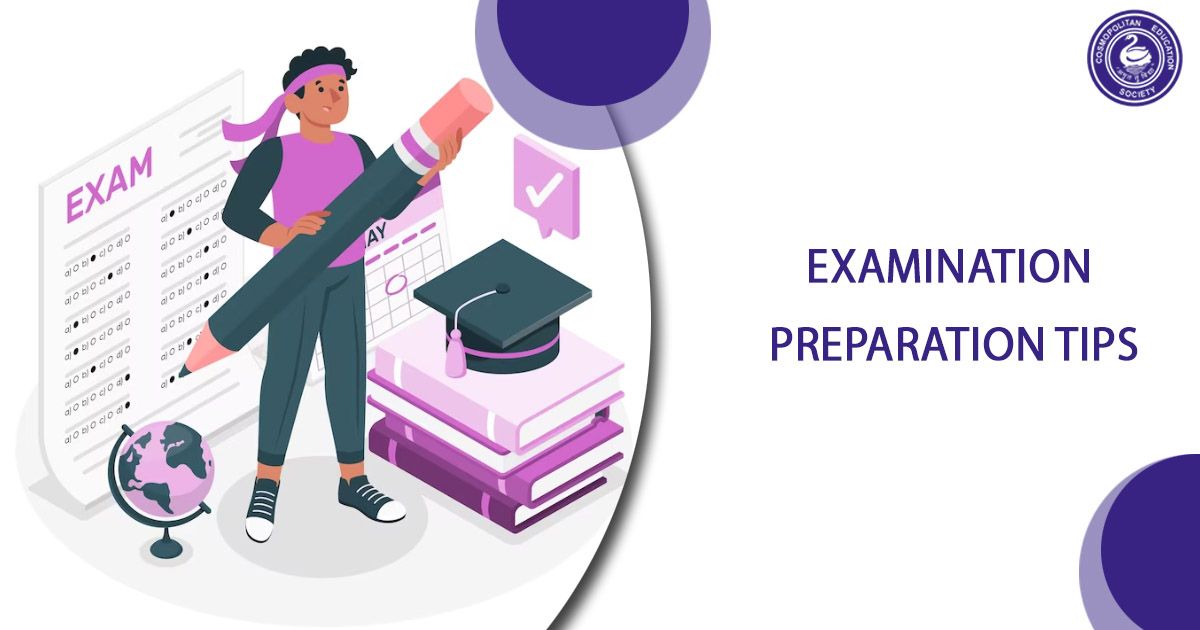
Top 10 Exam Preparation Tips
Are your exams stressing you out?
Exam time is quite stressful for students at any stage. Be it pre-examination or even post just when the results are out. Whether it is school or higher education, exam preparation is not only an art but also a science. We all know that exams are not only about how much we know and how well-prepared we are with the syllabus, but equally about how well one manages time, stress, and other factors that can add to anxiety.
PREPARING FOR EXAMINATIONS?
THESE ARE THE TOP TEN TIPS YOU MUST KNOW ABOUT.
To help students and learners master their exams seamlessly, we have a complete and curated list of tips students can depend on for exam preparation. Most of these tips are universal and can be different disregarding your study field or discipline.
1. Planning: One of the most important tips for final/major exam preparation is to have a study plan or schedule. A study plan is a complete strategy that includes a lot of thinking, thought, and attention. Start by highlighting all that you have to cover with a stipulated timeline. Leave the last couple of days for revision and spillover tasks.
2. Identify your ideal study area: Most of us make this silly error of studying in our bedrooms, or living rooms, which may not be the ideal space for you to study. This is mainly because of the level of distractions you can expect in these respective areas. From lethargy in the bedroom to the ringing doorbell in the living room. The only important thing is to have a study place that enables you to concentrate and maintain optimal focus.
We recommend it should be a quiet space, free from disturbances. Additionally, assure that you have enough light (natural or artificial) not too harsh or dull to your gentle eyes. Also, try to study in a hygienic environment as it enhances knowledge transfer. Lastly, ensure that you have comfortable furniture (table, chair) to sit on and study effortlessly.
3. Stay hydrated and eat a well-balanced meal: It is very important to keep yourself hydrated and not make the mistake to starve. If you don’t consume enough liquids or enough food, your body will start sickening, leading to discomfort which will boil down to inefficient study. Always keep a bottle of water close to you and take a sipping every hour. Ensure that you consume a healthy diet that has nutritious ingredients to keep those brain juices flowing.
4. Rest time is important: It often happens that students start their preparation in the last few days and find themselves affected with a lot to study, pushing study hours beyond the capable levels. Firstly, it is very vital to take small breaks during your study day to allow your brain to re-energize itself. Try to maintain good sleep cycles to avoid a drowsy study routine. You will not do justice to either activity. Ideally, you should aim to grab a minimum of 8 hours of sleep every day.
5. Practice: It is important to practice questions as much as you can. Start with the questions explained in the class and those mentioned in your study objective. Once you practice those and find yourself confident enough, take ache at attempting previous years’ question papers to get a grip of what the exam will be like.
6. Group studies: Group study enables students to come together as a group to share knowledge, help each other in subjects better known by some, and get good grades together. Additionally, when students share their knowledge and learnings with others, it further gets habit in their minds leading to longer holding.
7. Make reference note: It is important to make notes during the first reading itself. As exam day comes closer, you will not have enough time to go back to every chapter in your portion. Therefore, making small notes is one of the best points for exam preparation for all students. It is an effective way to revise just before the exams and quickly remind oneself of all the important points in one shot.
8. Use diagrams and visual: It is no surprise that your mind registers and keep the visual representation of diagrams and flowcharts more than simple textual learning. When we create flow charts or diagrams, our brains automatically create a link between different things we learn and help us retain the knowledge much longer. Additionally, figures and diagrams are easier to understand and also recap all knowledge into a visual snap
9. Ask for help: Students should not shy away from searching for help from others, be it their friends, parents, teachers, or any platform. Today, there is an excess of e-learning platforms that empower students with resources and tools for exam preparation.
10. Plan your exam day: Start by recognizing all the information you need for the day like your roll number, etc. and have it in one place. Make sure you are near the location of the exam and have all stationery and other needs are taken care of. Finally, make a plan to reach before the exam time to keep away from any last-minute stress.
Above is a detailed list of tips you can depend on in case you need assistance to manage pre-exam anxiety. We at Harshad Valia International School, aim to empower our students to optimally perform in examinations.
Need guidance on what to do post-10th standard?
Here is a list of courses after 10th standard at your disposal.
